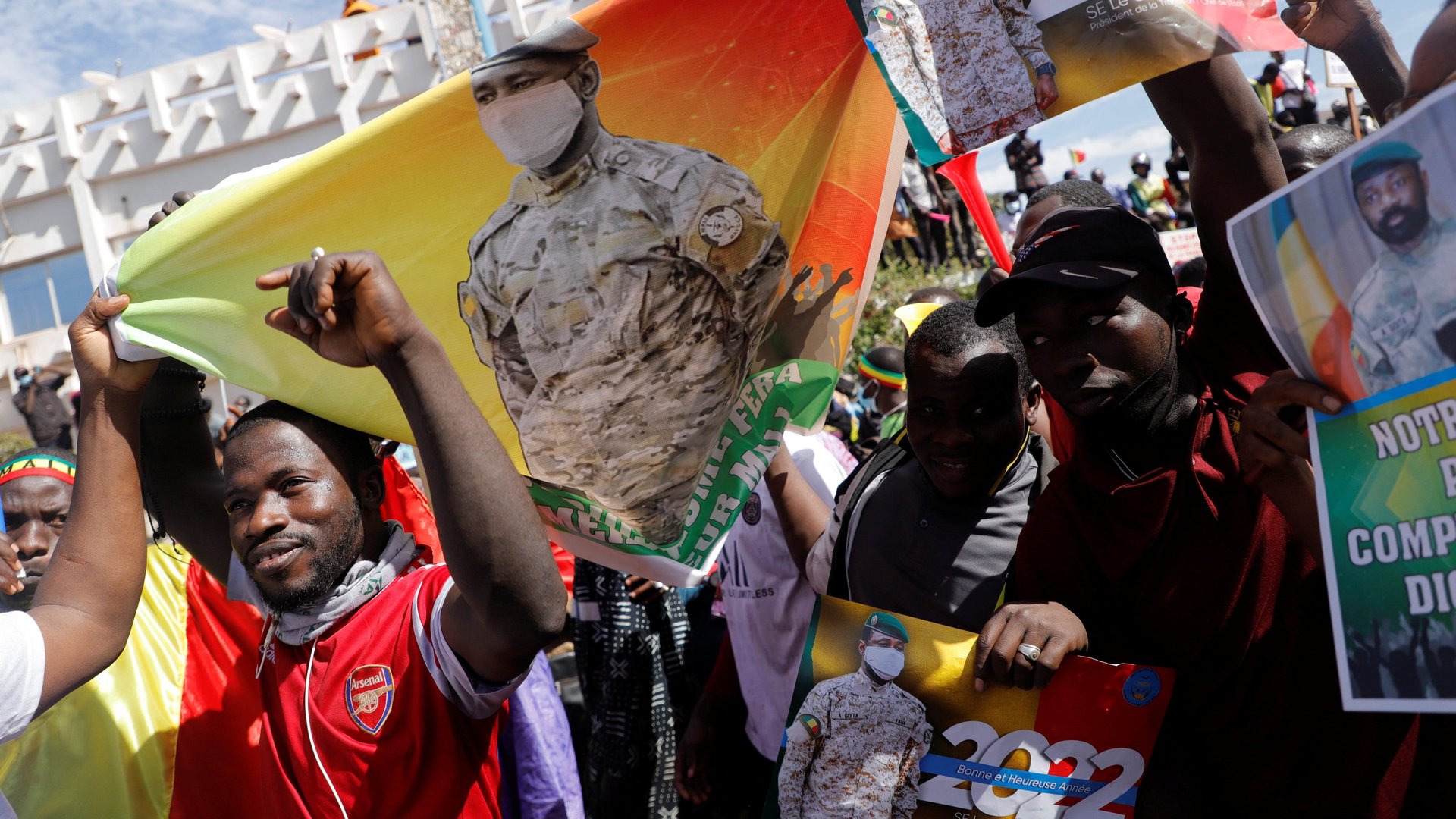Mali will suspend landing slots for airlines that obey the Ecowas embargo
Mali is pushing back on plans by west Africa’s main multilateral body—the Economic Community of West African States (Ecowas)—to isolate it from the rest of the world, particularly in the area of international travel.


Mali is pushing back on plans by west Africa’s main multilateral body—the Economic Community of West African States (Ecowas)—to isolate it from the rest of the world, particularly in the area of international travel.
On Jan. 15, the landlocked country released a statement asking airlines to indicate whether or not they intend to keep flying passengers to the Modibo Keita International Airport in Bamako, the country’s capital city. Airlines were given 72 hours from the date of the notice to respond.
“Beyond this time, their time slots will be attributed to other airlines in order to ensure a continuity of service,” transportation minister, Dembele Madina Sissoko, said.
Economic sanctions have hurt Mali in the past and over the past few days, there have been large nationwide protests against the latest sanctions from Ecowas.
Ecowas imposed air and land border restrictions on Mali
Mali made the move in response to actions taken by a few airlines that had suspended flights to Mali namely Air Senegal, and Air Côte d’Ivoire, as well as Air France which said its decision was “in accordance with the decisions of the French authorities.”
In Senegal and Cote d’Ivoire’s cases, these airlines were ostensibly responding to a new set of sanctions imposed on Mali to punish the country’s interim military government for not sticking to an initial agreement to hold democratic elections this year.
Ecowas imposed six new sanctions on Mali after its latest meeting chaired by Ghanaian president Nana Akufo Addo in Accra on Jan. 9. The stringent measures include freezing Mali’s assets in central banks run by Ecowas member countries, suspending all financial assistance and transactions between Mali and Ecowas institutions, and suspending all transactions between Ecowas member countries and Mali except for essential items like food, medicine, and materials for covid-19 relief.
Ecowas also mandated its members to close land and air borders, an instruction that fell more directly on the five Ecowas countries that share direct borders with Mali: Senegal, Guinea, Côte d’Ivoire, Burkina Faso, and Niger. (Mauritania and Algeria have direct borders with Mali but are not Ecowas members.)
Countries warn citizens against going to Mali
Ecowas’s new sanctions against Mali have been supported by some of the world’s advanced economies, including France, and the US. “We support ECOWAS’s decision to impose additional economic and financial sanctions to urge the transition government to keep its pledge to the Malian people to return their country to democracy,” a statement on the US State department website said.
Indeed, a travel advisory by the state department published in December bluntly warns Americans against visiting Mali “due to crime, terrorism, and kidnapping” with those issues highlighted in bold. The UK’s advisory strikes a similar tone in discouraging all non-essential travel to Mali, especially to the regions of Tombouctou, Kidal, Gao, Mopti, and Segou. Canada has leaned into this to caution against all travel to the west African country “due to the threat of terrorism and banditry,” as has the Republic of Ireland.
At least one country has vowed to keep its doors open to Mali: its close neighbor Guinea. Also entangled by military control after a coup, Guinea’s Ecowas membership has been suspended. The body is mulling further actions as neither an electoral calendar nor a transition plan has been produced by Mamady Doumbouya’s government four months after taking over.
Sign up to the Quartz Africa Weekly Brief here for news and analysis on African business, tech, and innovation in your inbox.